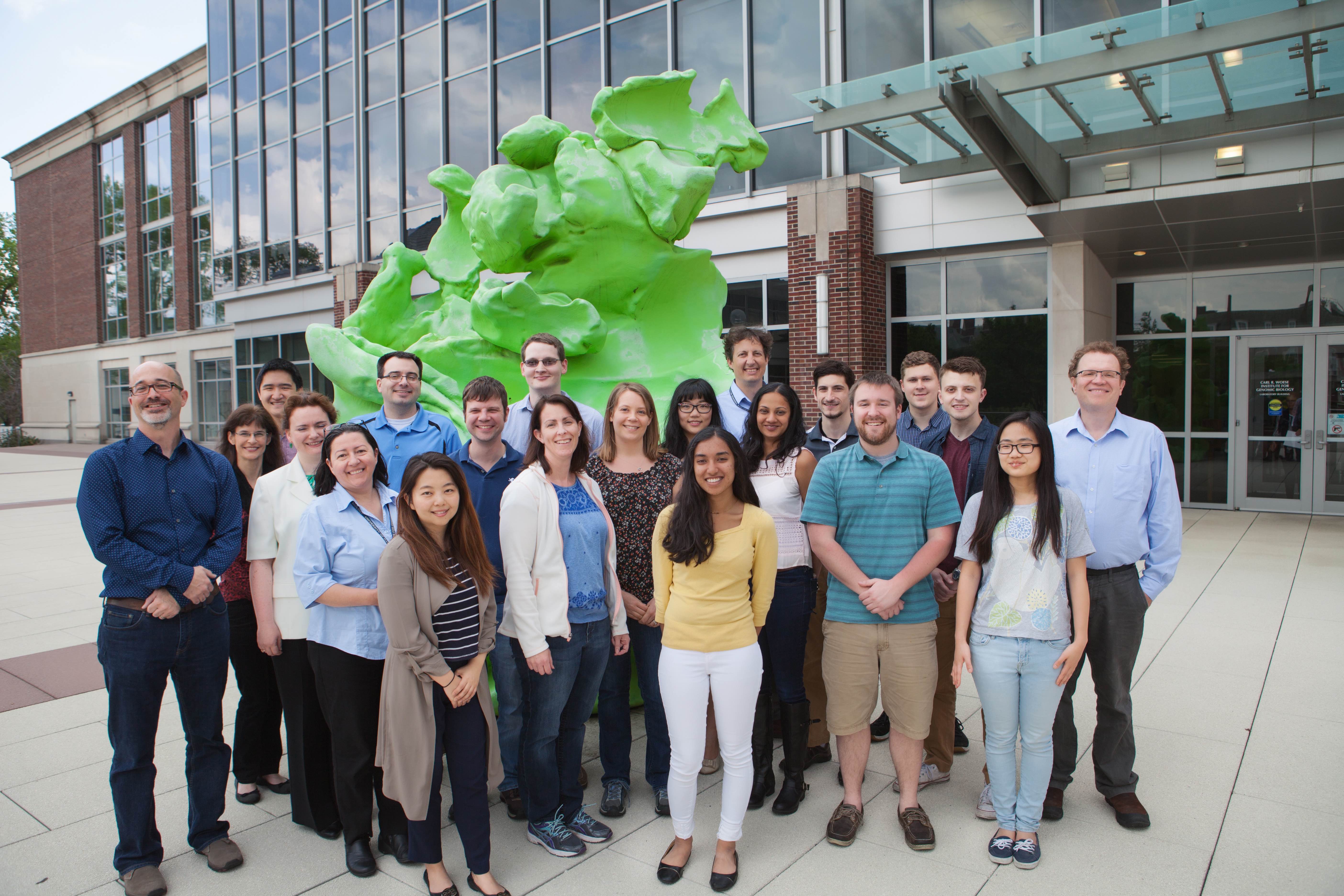Past HPCBio Workshops
 HPCBio Workshop materials are licensed under a Creative Commons Attribution-ShareAlike 4.0 International License.
HPCBio Workshop materials are licensed under a Creative Commons Attribution-ShareAlike 4.0 International License.
To access the Box links, you will need to log into your UIUC Box account.
WORKSHOP |
DESCRIPTION |
PAST MATERIALS |
|
Intro to Linux & Biocluster |
The Linux command line interface is a text-based way of interacting with a computer, particularly high performance computer systems that are capable of analyzing NGS data. The most common and cutting-edge bioinformatics tools are best run via the command line. This is a workshop for biologists who want to get acquainted with using the Linux command line interface. Additionally, the workshop will demonstrate how to use a high performance computational cluster, and how to submit jobs (a set of tasks one gives to the cluster) using the SLURM job scheduler. | |
| Intro to R & Bioconductor | R is a free, open-source software environment and programming language for statistical computing and graphics. It is available for all computer platforms and is widely used, and many packages have been developed in the Bioconductor project for analysis of genomic data, including Next Generation Sequencing (NGS) data. This workshop aims to take the novice and turn them into a beginning R/Bioconductor user. We will describe the R environment and programming language structure so that students can start to read and write code and know where to get help. Additonally, we will give an overview of the Bioconductor project, common object structures and manipulation, tips on finding particular packages and how to start learning to use a package. | |
| Data Carpentry for Genomics | This workshop is co-hosted by HPCBio and CSE to help attendees learn basic skills necessary to get them started working on genomic data. This includes hands-on introductions to high performance cluster computing, linux command line, best data tidiness practices, R programming and Bioconductor packages. In addition, attendees will learn how to move sequencing data to a computational cluster, and perform initial quality control steps. | |
| RNA-Seq Analysis | Sequencing of RNA (RNA-Seq) is the latest method to assess global gene expression because it can be done on any species. This is a 4-day workshop for biologists who are doing or plan on doing RNA-Seq experiments and would like to learn how to analyze their data. It will cover experimental design, evaluation of sequencing quality, genome alignment, gene count extraction, differential gene expression analysis and downstream data mining. It will also include discussions of what to do if your species lacks gene models and/or a genome. | |
| Microbial Profiling (+ Linux) | This workshop will teach attendees how to analyze rRNA amplicon (e.g. 16S, 18S, ITS...) microbiome datasets for the purpose of investigating the presence and diversity of microorganisms. This workshop first aims to familiarize attendees with basic Linux commands necessary to run microbiome analysis programs, and to give an introduction to amplicon design and sequencing. Attendees will be provided a practice dataset, and begin analysis by properly processing and filtering the sequenced reads, followed by creating a feature table. Following this, attendees will learn how to perform common statistical analysis and create informative visualizations to investigate abundance and diversity of microorganisms present in the dataset. |
Fall 2021 (dada2 & phyloseq) Fall 2020 (QIIME2) Fall 2019 (QIIME2) Fall 2018 (QIIME2) Fall 2017 (QIIME2) Summer 2016 (QIIME) |
| 10X Single Cell RNA-Seq Analysis | This 4-day workshop will provide an introduction to 10X Single Cell, and hands-on instructions how to analyze a RNA-Seq example dataset. The aim of this workshop is to introduce attendees to 10X Single Cell technology and to familiarize them with command line software and R packages needed to analyze, explore, and visualize 10X scRNA-Seq data. | |
| Advanced R: Variant Analysis |
This 4 hour workshop instructs attendees on how to read, filter, and interrogate variant calls that are in VCF (Variant Call Format) format with Bioconductor packages in R. Analyses may include some or all of the following topics: assessing minor allele frequency, missing data rate, heterozygosity, and/or linkage disequilibrium; working with genome annotations as TxDb objects; discovering what genes are near SNPs of interest; identifying functional consequences of variants. |
Fall 2020 |
| Chip-Seq Analysis | ChIP-Seq is a sequencing method used to investigate protein binding sites in DNA. This three half-day workshop will introduce you to this method of sequencing as well as teach you how to process the sequences, align sequences to a reference, and call peaks by following a bioinformatics pipeline used by HPCBio staff. Additional topics such as normalization, visualization, will be explored as time allows. | |
| Computational Skills for Genomics | This hands-on workshop, jointly taught by HPCBio and CNRG, aims to introduce you to high performance cluster computing, linux command line, R programming and Bioconductor packages. In addition, attendees will learn how to move data to a computational cluster, and perform initial quality control steps on sequence reads using FASTQC. Knowledge of Linux and R can be very useful for analyzing genomics and many other -omics data. At the end of this workshop you will gain a familiarity with Linux and R commands. You will not become an expert in genomics analysis techniques, but you will get an idea of where to start when given raw sequence data. |

